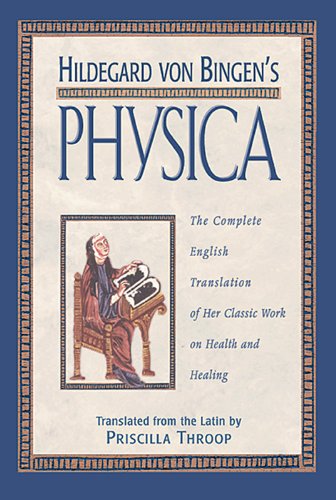
Hildegard Von Bingen’s Physica
Translated from the Latin by Priscialla Throop.
It can be hard, as a re-enactor interested in cosmetics and herbal medicine to find texts on how people in past healed themselves and adorned themselves with cosmetics. We know that they did. Wanting to appear beautiful is an old human concept. But some traditions appear to have been verbal, passed down in stories from parent to child. And more are written either in the medieval language or in Latin – even then known as the scientific language.
Hildegard Von Bingen’s Physica, is one written in Latin. It was written in the 15th Century and describes in great detail what plants were good for healing. There’s not much actual cosmetic use within the book, it’s about healing. While the plants uses could still be applied today, it also uses the medieval concept of the humors in the description (For instance, Calendular is referred to as cold and moist. It’s used as a way to heal scabies and calendular today is known for it’s properties in healing skin issues.)We sell a calendula ointment, based on a different medieval text, that’s quite good for skin issues. Calendula Ointment
For anyone interested in Medieval herbs and healing, this is a must have book to add to the collection.
[tabs] [tab title=”Publishers Blurb”] Saint, mystic, healer, visionary, fighter, Hildegard von Bingen stands as one of the great figures in the history of women in me. At a time when few women could write and most were denied a formal education, Hildegard von Bingen became a legendary healer, visionary, musician, artist, poet, and saint. Her works include twenty-seven symphonic compositions; Scivias, a compilation of her visions; and her two major medical works, Causae et Curae, a medical compendium, and Physica, published here in English in its entirety for the first time. Physicahas a strong affinity with the Eastern medical approaches gaining great respect today. The modern reader interested in natural healing will recognize the enormous truth in the theories of this 12th-century physician, which remind us that our cures for illness depend on our natural world and our place in it. [/tab] [/tabs]